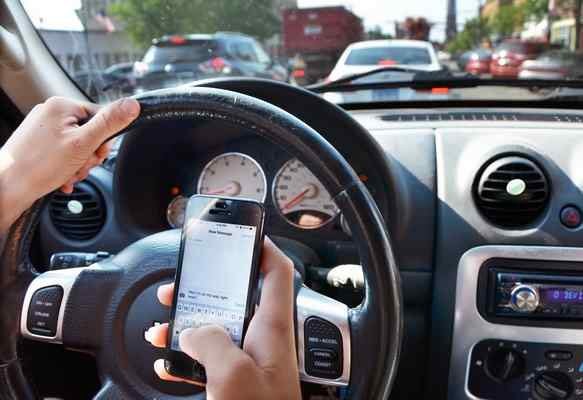Distracted drivers can be protected due to a "sixth sense" that reduces the risk of auto accidents but it does not work when they are texting, based on a new study. Creating and sending text messages caused the study's participants to drive outside the lines on the road. This result differed from drivers who were emotional or absent-minded.
The experiment was published recently in the journal Scientific Reports.
Mental and emotional distractions actually helped volunteers drive more safely and in a straight line, according to The Huffington Post. This paradoxical result is surprising.
Researchers explain that people have great focus due to a "sixth sense." It helps to correct problems following the rules of the road.
Lead author Ioannis Pavlidis is a computer science professor at the University of Houston's Computational Physiology Lab. He explained a driver's sixth sense can keep them on course when their minds drift and emotions boil. However, texting blocks the sixth sense.
Pavlidis wanted to study how three types of distractions affected drivers. They included cognitive, emotional, and physical.
The study included 59 subjects who used a driving simulator in normal and stressed conditions.
Participants were stressed in different ways. They included math questions, emotionally-charged questions, and one-handed texting.
The results showed that all three types of distractions produced physical effects. However, subjects who had to deal with math problems or tough questions drove more safely than those who texted while driving.
Pavlidis' theory is that the brain's anterior cingulate cortex (ACC) corrects stressed-caused errors in distracted drivers. However, texting affects the "sixth sense." The ACC does not get continuous hand-eye input because drivers are looking at the phone and using their hand to text.
In related news, startup company Greenlight has launched a new $50 device to reduce distracted driving, according to The Seattle Times. SmartCradle is a device that attaches to the car dashboard.
The small cradle holds a smartphone and includes an app that records data and driving video.
Greenlight hopes to gather enough driving data to compare various drivers' activities. Drivers could also use the collected data to receive lower insurance rates.
Here's a Toyota video about staying focused when driving:


